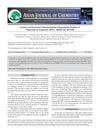 9 citations,
June 2019 in “Archives of Dermatological Research”
9 citations,
June 2019 in “Archives of Dermatological Research” Both topical calcipotriol and narrowband UVB improved alopecia, but combining them didn't enhance the effect on hair loss severity, despite higher vitamin D3 levels.
 12 citations,
June 2010 in “Journal of dermatology”
12 citations,
June 2010 in “Journal of dermatology” Some patients with severe alopecia areata developed skin darkening from their treatment, which may indicate a less effective response to the therapy.
 3 citations,
June 2019 in “Journal of cosmetic dermatology”
3 citations,
June 2019 in “Journal of cosmetic dermatology” Lower pH straighteners change hair more but weaken it.
 July 2023 in “Zenodo (CERN European Organization for Nuclear Research)”
July 2023 in “Zenodo (CERN European Organization for Nuclear Research)” Trazodone and chlorpromazine may help treat sexual dysfunction caused by finasteride and SSRIs.
 4 citations,
May 2020 in “Medicine in Drug Discovery”
4 citations,
May 2020 in “Medicine in Drug Discovery” The study developed a method to detect minoxidil and its sulfate form, found that minoxidil sulfate is temperature-sensitive, and identified a way to potentially increase its stability for hair loss treatment.
 125 citations,
September 2019 in “Journal of Clinical Immunology”
125 citations,
September 2019 in “Journal of Clinical Immunology” Foxp3 is crucial for regulatory T cell function, and targeting these cells may help treat immune disorders.
 8 citations,
June 2019 in “Orphanet journal of rare diseases”
8 citations,
June 2019 in “Orphanet journal of rare diseases” Corticosteroids are the most effective treatment for Satoyoshi syndrome.
 35 citations,
May 2022 in “Baillière's best practice and research in clinical endocrinology and metabolism/Baillière's best practice & research. Clinical endocrinology & metabolism”
35 citations,
May 2022 in “Baillière's best practice and research in clinical endocrinology and metabolism/Baillière's best practice & research. Clinical endocrinology & metabolism” Androgens like testosterone are important hormones for both men and women, made differently in each sex and affecting the body by regulating genes and quick interactions with cell components.
 8 citations,
June 2019 in “Pharmaceutical research”
8 citations,
June 2019 in “Pharmaceutical research” Applying heat with certain chemicals can greatly improve how well isotretinoin gets into the skin through hair follicles.
 5 citations,
March 2019 in “International Journal of Endocrinology”
5 citations,
March 2019 in “International Journal of Endocrinology” Exercise and finasteride together improve ovary health in PCOS rats.
 May 2019 in “Asian Journal of Chemistry”
May 2019 in “Asian Journal of Chemistry” Finasteride forms three new products under acidic stress.
 8 citations,
February 2020 in “Fertility and Sterility”
8 citations,
February 2020 in “Fertility and Sterility” Operative hysteroscopy is still the main treatment for Asherman syndrome, but more research is needed on post-surgery methods.
 11 citations,
June 2022 in “Frontiers in immunology”
11 citations,
June 2022 in “Frontiers in immunology” New protein changes may be involved in the immune attack on hair follicles in alopecia areata.
 June 2022 in “Rheumatology research”
June 2022 in “Rheumatology research” Lupus can be a rare cause of high calcium levels in the blood.
 306 citations,
April 2019 in “International Journal of Molecular Sciences”
306 citations,
April 2019 in “International Journal of Molecular Sciences” The skin has a complex immune system that is essential for protection and healing, requiring more research for better wound treatment.
 6 citations,
November 2023 in “Clinical Pharmacokinetics”
6 citations,
November 2023 in “Clinical Pharmacokinetics” Ritlecitinib shows promise as a versatile treatment for various autoimmune and inflammatory diseases.
 3 citations,
January 2023 in “Dermatology Practical & Conceptual”
3 citations,
January 2023 in “Dermatology Practical & Conceptual” IMA and IMA/albumin levels don't predict alopecia areata severity.
 8 citations,
July 2018 in “Current Sexual Health Reports”
8 citations,
July 2018 in “Current Sexual Health Reports” Finasteride can cause lasting sexual dysfunction, depression, and other side effects, needing more research for treatment.
 9 citations,
March 2022 in “Antioxidants”
9 citations,
March 2022 in “Antioxidants” Synthetic antioxidants are effective, cheap, and stable, with some like zinc and cholecalciferol reducing child and cancer deaths, but the safety of additives like BHA, BHT, TBHQ, and PEG needs more research.
 April 2018 in “Journal of Investigative Dermatology”
April 2018 in “Journal of Investigative Dermatology” Claudin-1 and Claudin-3 are crucial for keeping hair follicle structure and preventing a type of hair loss called telogen effluvium.
 1 citations,
January 2024 in “Scientific reports (Nature Publishing Group)”
1 citations,
January 2024 in “Scientific reports (Nature Publishing Group)” Human hair was used to make biodegradable plastic films that could be useful for packaging and disposable products.
 May 2019 in “bioRxiv (Cold Spring Harbor Laboratory)”
May 2019 in “bioRxiv (Cold Spring Harbor Laboratory)” Testosterone significantly affects urination differences between male and female mice.

Vitamin D is crucial for skin health and managing skin diseases.
 5 citations,
May 2023 in “Frontiers in immunology”
5 citations,
May 2023 in “Frontiers in immunology” Environmental factors like diet and vitamin levels, especially Vitamin D, can affect autoimmune diseases differently, with lifestyle changes potentially improving outcomes.
 January 2023 in “Cancer research, statistics, and treatment/Cancer research, statistics and treatment”
January 2023 in “Cancer research, statistics, and treatment/Cancer research, statistics and treatment” Vijaya successfully fought stage 2A breast cancer with surgery, chemotherapy, radiotherapy, and hormone therapy, while advocating for support groups.
 1 citations,
January 2023 in “Burns and trauma”
1 citations,
January 2023 in “Burns and trauma” Tiny particles from 3D-grown skin cells speed up wound healing by promoting blood vessel growth.
 188 citations,
March 2018 in “Frontiers in Immunology”
188 citations,
March 2018 in “Frontiers in Immunology” Regulatory T-cells are important for healing and regenerating tissues in various organs by controlling immune responses and aiding stem cells.
 January 2023 in “Revista Paulista de Pediatria”
January 2023 in “Revista Paulista de Pediatria” A Brazilian male with IFAP syndrome has a unique genetic variant causing his condition.
 January 2019 in “Przegląd Dermatologiczny”
January 2019 in “Przegląd Dermatologiczny” Patients with one autoimmune disease should be checked for other autoimmune disorders.
 1 citations,
March 2024 in “BioDrugs”
1 citations,
March 2024 in “BioDrugs” Biologics for severe asthma have known side effects, but some new risks need more study.





























